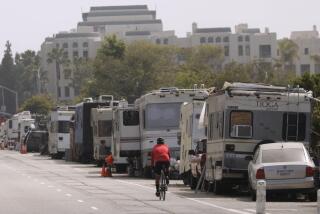More ‘granny flats’ are coming after governor signs two bills to ease housing shortage
More ‘granny flats’ are coming after governor signs two bills to ease housing shortage
It will be easier for California homeowners to build additional small units on their properties whether in their garages or as freestanding second structures under legislation signed Tuesday by Gov. Jerry Brown.
The two bills, from Sen. Bob Wieckowski (D-Fremont) and Assemblyman Richard Bloom (D-Santa Monica), are designed to ease the state’s affordability crisis by increasing the housing supply. The measures eliminate cities’ ability to require additional parking spaces for units near public transit and limit fees charged to connect to local water and sewer systems among other efforts to make it cheaper and easier to build the secondary units, also known as granny flats.
“Removing the most egregious obstacles to building these units will help to increase the supply of affordable housing in California and allow more people to remain in the communities they call home,” Wieckowski said in a release.
Granny flats have become a political issue in cities across the state for residents opposed concerned that they conflict with neighborhood character.
In Los Angeles, the units have been in legal limbo since earlier this year when a court ruling found the city was permitting granny flats under state rules despite never repealing its more restrictive city ordinance. Last month, the City Council voted to grandfather in secondary units that were already approved and in the pipeline before the court ruling, but also voted to write new rules to take into account the distinct needs of different neighborhoods.
If a fraction of homeowners in both Los Angeles and the Bay Area decide to build granny flats, it could make a dent in both regions’ housing shortages, experts have said.
This week, the Obama administration also favorably cited granny flats as a way to ease housing prices across the country.
Latest updates
More to Read
Get the L.A. Times Politics newsletter
Deeply reported insights into legislation, politics and policy from Sacramento, Washington and beyond. In your inbox three times per week.
You may occasionally receive promotional content from the Los Angeles Times.










